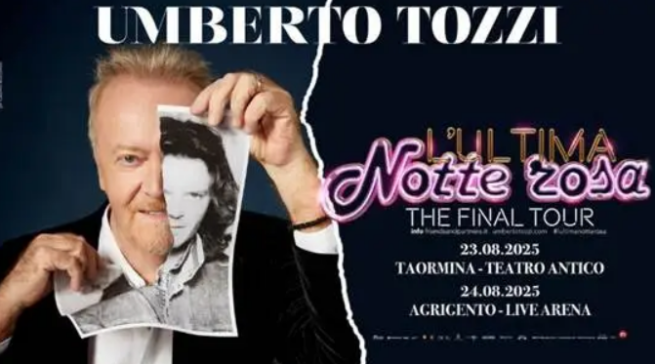S I C I L I A C L A S S I C A F E S T I V A L
AIDA
An Opera by Giuseppe Verdi
Ancient Theatre, Sunday 24th AUgust 2025 @ 9:30pm
TICKETS on vivaticket (commissions not included)
Platea: –
Gallery, lateral: € 70,00/80,00
Gallery, central: € 90,00
Cavea, lateral: € 60,00
Cavea, central: € 70,00
Cavea, non-numbered seats: € 35,00
MORE INFO
Associazione Sicilia Classica Festival – www.facebook.com/siciliaclassicafestival
SYNOPSIS
Antecedent: The Egyptians have captured and enslaved Aida, a Nubian princess. An Egyptian military commander, Radamès, struggles to choose between his love for her and his loyalty to the Pharaoh. To complicate the story further, the Pharaoh’s daughter Amneris is in love with Radamès, although he does not return her feelings.
Act 1
Scene 1: A hall in the King’s palace; through the rear gate the pyramids and temples of Memphis are visible
Ramfis, the high priest of Egypt, tells Radamès, the young warrior, that war with the Nubians seems inevitable, and Radamès hopes that he will be chosen as the Egyptian commander (Ramfis, Radamès : Sì, corre voce l’Etiope ardisca / “Yes, it is rumored that Ethiopia dares once again to threaten our power”).
Radamès dreams both of gaining victory on the battlefield and of Aida, the Nubian slave, with whom he is secretly in love (Radamès: Se quel guerrier io fossi! … Celeste Aida / “Heavenly Aida”). Aida, who is also secretly in love with Radamès, is the captured daughter of the Nubian King Amonasro, but her Egyptian captors are unaware of her true identity. Her father has invaded Egypt to deliver her from servitude.
Amneris, the daughter of the Egyptian King, enters the hall. She too loves Radamès, but fears that his heart belongs to someone else (Radamès, Amneris: Quale insolita gioia nel tuo sguardo / “In your looks I trace a joy unwonted”).
Aida appears and, when Radamès sees her, Amneris notices that he looks disturbed. She suspects that Aida could be her rival, but is able to hide her jealousy and approach Aida (Amneris, Aida, Radamès: Vieni, o diletta, appressati / “Come, O delight, come closer”).
Set design by Philippe Chaperon for Act 1, Scene 2 at the Cairo première. The King enters, along with the High Priest, Ramfis, and the whole palace court. A messenger announces that the Nubians, led by King Amonasro, are marching towards Thebes. The King declares war and proclaims that Radamès is the man chosen by the goddess Isis to be the leader of the army (The King, Messenger, Radamès, Aida, Amneris, chorus: Alta cagion v’aduna / “Oh fate o’er Egypt looming”). Upon receiving this mandate from the King, Radamès proceeds to the temple of Vulcan to take up the sacred arms (The King, Radamès, Aida, Amneris, chorus: Su! del Nilo al sacro lido / “On! Of Nilus’ sacred river, guard the shores”).
Alone in the hall, Aida feels torn between her love for her father, her country, and Radamès (Aida: Ritorna vincitor / “Return a conqueror”).
Scene 2: Inside the Temple of Vulcan
Solemn ceremonies and dances by the priestesses take place (High Priestess, chorus, Radamès: Possente Ftha … Tu che dal nulla / “O mighty Ptah”). This is followed by the installation of Radamès to the office of commander-in-chief (High Priestess, chorus, Radamès: Immenso Ftha .. Mortal, diletto ai Numi / “O mighty one, guard and protect!”). All present in the temple pray for the victory of Egypt and protection for their warriors (Nume, custode e vindice/ “Hear us, O guardian deity”).
Act 2
Scene 1: The chamber of Amneris
Dances and music to celebrate Radamès’ victory take place (Chorus, Amneris: Chi mai fra gli inni e i plausi / “Our songs his glory praising”‘). However, Amneris is still in doubt about Radamès’ love and wonders whether Aida is in love with him. She tries to forget her doubt, entertaining her worried heart with the dance of Moorish slaves (Chorus, Amneris: Vieni: sul crin ti piovano / “Come bind your flowing tresses”).
When Aida enters the chamber, Amneris asks everyone to leave. By falsely telling Aida that Radamès has died in the battle, she tricks her into professing her love for him. In grief, and shocked by the news, Aida confesses that her heart belongs to Radamès eternally (Amneris, Aida: Fu la sorte dell’armi a’ tuoi funesta / “The battle’s outcome was cruel for your people …”).
Scene 2, set design for the Cairo premiere by Édouard Desplechin
This confession fires Amneris with rage, and she plans on taking revenge on Aida. Ignoring Aida’s pleadings (Amneris, Aida, chorus: Su! del Nilo al sacro lido / “Up! at the sacred shores of the Nile”), Amneris leaves her alone in the chamber.
Scene 3: The grand gate of the city of Thebes
Radamès returns victorious and the troops march into the city (Chorus, Ramfis: Gloria all’Egitto, ad Iside / “Glory to Egypt, to Isis!”). The Egyptian king decrees that on this day the triumphant Radamès may have anything he wishes. The Nubian captives are rounded up, and Amonasro appears among them. Aida immediately rushes to her father, but their true identities are still unknown to the Egyptians, save for the fact that they are father and daughter. Amonasro declares that the Nubian king (he himself) has been slain in battle. Aida, Amonasro, and the captured Ethiopians plead with the Egyptian King for mercy, but the Egyptians call for their death (Aida, Amneris, Radamès, The King, Amonasro, chorus: Che veggo! .. Egli? .. Mio padre! .. Anch’io pugnai / “What do I see?.. Is it he? My father?”).
Claiming the reward promised by the King, Radamès pleads with him to spare the lives of the prisoners and to set them free. Gratefully, the King of Egypt declares Radamès to be his successor and to be his daughter’s betrothed (Aida, Amneris, Radamès, The King, Amonasro, chorus: O Re: pei sacri Numi! .. Gloria all’Egitto / “O King, by the sacred gods …”). Aida and Amonasro remain as hostages to ensure that the Ethiopians do not avenge their defeat.
Act 3
“O patria mia”
On the banks of the Nile, near the Temple of Isis
Prayers are said (Chorus, Ramfis, Amneris: O tu che sei d’Osiride / “O thou who to Osiris art …”) on the eve of Amneris and Radamès’ wedding in the Temple of Isis. Outside, Aida waits to meet with Radamès as they had planned (Aida: Qui Radamès verra .. O patria mia / “Oh, my dear country!”).
Amonasro appears and makes Aida agree to find out the location of the Egyptian army from Radamès (Aida, Amonasro: Ciel, mio padre! .. Rivedrai le foreste imbalsamate / “Once again shalt thou gaze.”). When he arrives, Amonasro hides behind a rock and listens to their conversation.
Radamès affirms that he will marry Aida (Pur ti riveggo, mia dolce Aida .. Nel fiero anelito; Fuggiam gli ardori inospiti… Là, tra foreste vergini / “I see you again, my sweet Aida!”), and Aida convinces him to flee to the desert with her.
In order to make their escape easier, Radamès proposes that they use a safe route without any fear of discovery and reveals the location where his army has chosen to attack. Upon hearing this, Amonasro comes out of hiding and reveals his identity. Radamès feels dishonored. At the same time, Amneris and Ramfis leave the temple and, seeing Radamès with their enemy, call the guards. Amonasro and Aida try to convince Radamès to escape with them, but he refuses and surrenders to the imperial guards.
Act 4
Philippe Chaperon’s Act IV scene 2 set design for the 1880 Palais Garnier performance in Paris. File:Set design by Philippe Chaperon for Act4 sc2 of Aida by Verdi 1880 Paris.jpg Philippe Chaperon’s Act IV scene 2 set design for the 1880 Palais Garnier performance in Paris. Scene 1: A hall in the Temple of Justice. To one side is the door leading to Radamès’ prison cell.
Amneris desires to save Radamès (L’aborrita rivale a me sfuggia / “My hated rival has escaped me”). She calls for the guard to bring him to her.
She asks Radamès to deny the accusations, but Radamès refuses. Certain that, as punishment, he will be condemned to death, Amneris implores him to defend himself, but Radamès firmly refuses. He is relieved to know Aida is still alive and hopes she has reached her own country (Amneris, Radamès: Già i Sacerdoti adunansi / “Already the priests are assembling”). His decision hurts Amneris.
Radamès’ trial takes place offstage; he does not reply to Ramfis’ accusations and is condemned to death, while Amneris, who remains onstage, pleads with the priests to show him mercy. As he is sentenced to be buried alive, Amneris curses the priests while Radamès is taken away (Judgment scene, Amneris, Ramfis, and chorus: Ahimè! .. morir mi sento / “Alas … I feel death”).
Opening and close of act 4, scene 2: (“La fatal pietra” and “Morir! Sì pura e bella”, with some cuts in the middle), sung by Nicola Zerola in 1909 Problems playing this file? See media help. Scene 2: The lower portion of the stage shows the vault in the Temple of Vulcan; the upper portion represents the temple itself.
Radamès has been taken into the lower floor of the temple and sealed up in a dark vault, where he thinks that he is alone. As he hopes that Aida is in a safer place, he hears a sigh and then sees Aida. She has hidden herself in the vault in order to die with Radamès (Radamès and Aida: La fatal pietra sovra me si chiuse. / “The fatal stone now closes over me”). They accept their terrible fate (Radamès: Morir! Si pura e bella / “To die! So pure and lovely!”) and bid farewell to Earth and its sorrows.[31] Above the vault in the temple of Vulcan, Amneris weeps and prays to the goddess Isis. In the vault below, Aida dies in Radamès’ arms. (Chorus, Aida, Radamès, Amneris: Immenso Ftha / “Almighty Ptah.”)
WHERE TO STAY
Hotel La Pensione Svizzera – Hotel Villa Schuler – Hotel Villa Ducale – Hotel Villa Carlotta














